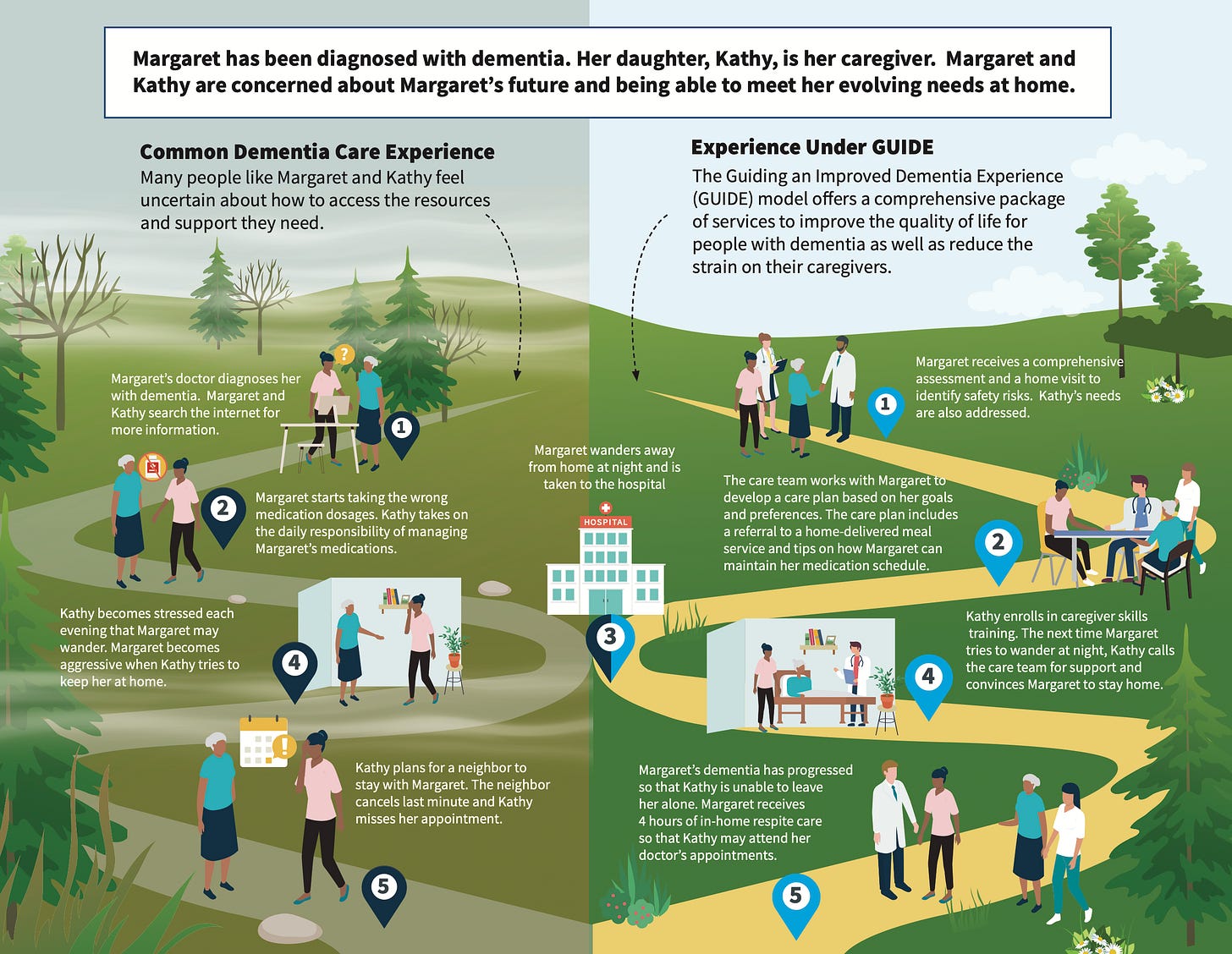Is the GUIDE Program in jeopardy?
I have hesitated to write about it because, like so many others, I’m afraid to do anything that might draw the attention of the budget slashers. So far the Guiding an Improved Dementia Experience (GUIDE) project seems to be proceeding with it’s eight year plan. I’ll copy my earlier article explaining what it does for dementia patients and their caregivers below.
This pilot project has the potential to help millions of patients and families in the decades to come. The only component that seems at risk in the bill that Congress is looking at is the Medicaid reimbursement for nursing homes. If they cut that. . . I really fear social collapse. All you have to do is spend a little time on the Alzheimer’s subreddit to understand the pressures of family caregivers operating in untenable conditions.
Learn more about the program. Send messages to your Congressman and Senators. We’ve waited too long to lose this chance to improve care of this most vulnerable population.
* * *
A big demonstration project is going on nationally, called the GUIDE program (Guiding an Improved Dementia Experience) which is funded under an alternative Medicare payment system similar to the hospice model. Hospice is paid on a flat fee per patient per day model under Medicare. This GUIDE payment system will be on a monthly payment structure that has tiers but is in the neighborhood of $300/month. It will follow a palliative care interdisciplinary team model with a focus on patient-centric goals or what we academics call goal-concordant care. One of the main thing it covers is respite care—something every person who has cared for a loved one with dementia needs. Also assistance getting dementia specific advance care planning documents into place that are customized to the patients values and preferences—something that must be done while they are in the early stages of the disease.
In my mind these kinds of innovations are overdue. The GUIDE article relays that researchers expect 14 million Americans to have dementia by 2060. We are gonna need to keep thinking outside of the box to meet those kind of demands.


